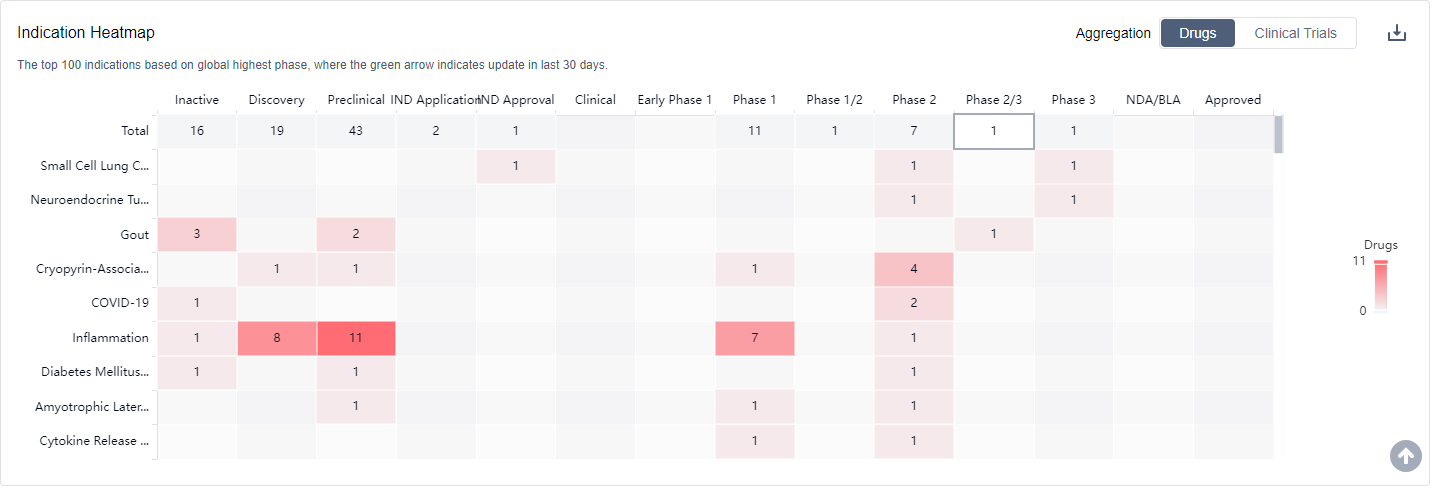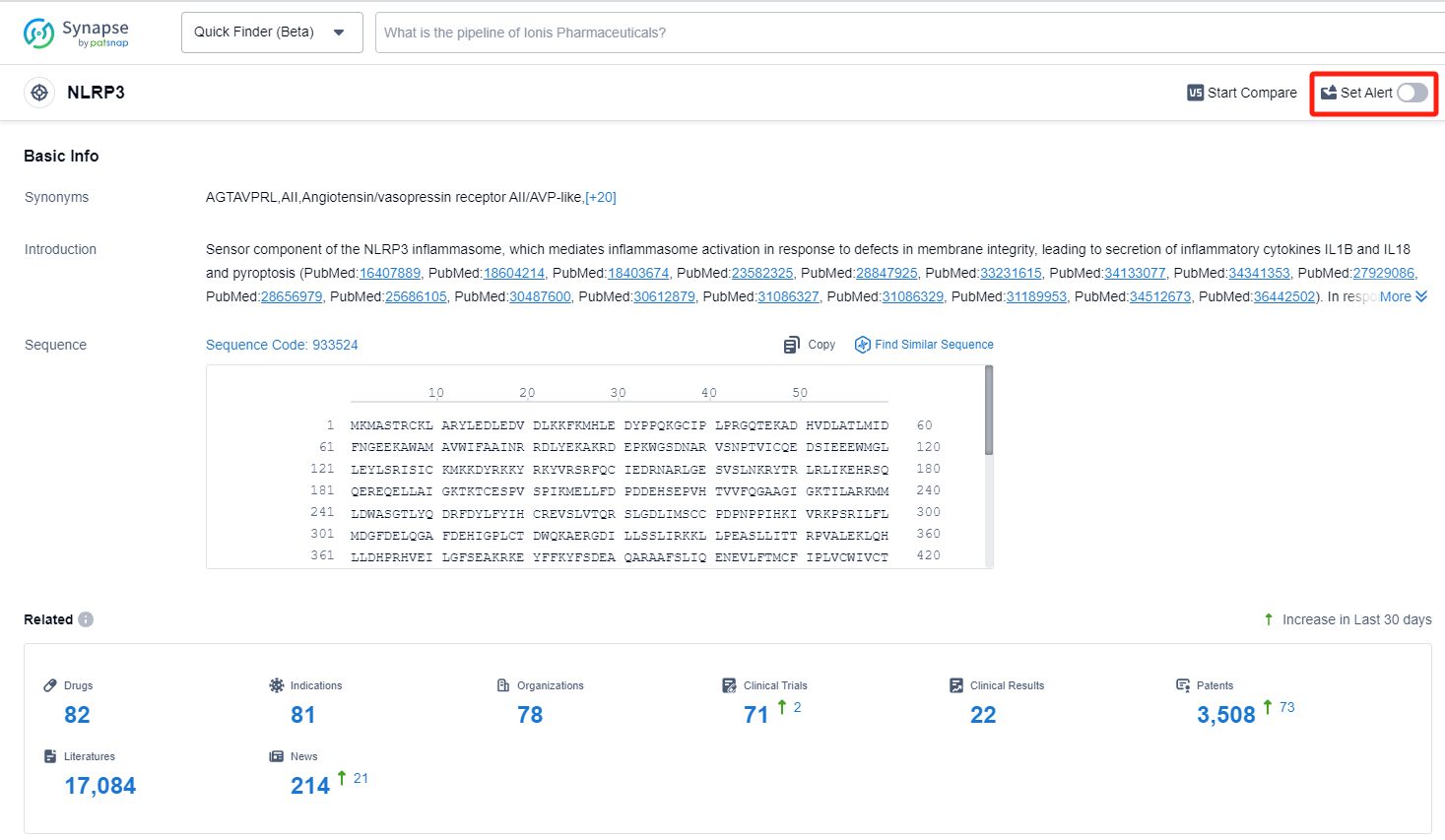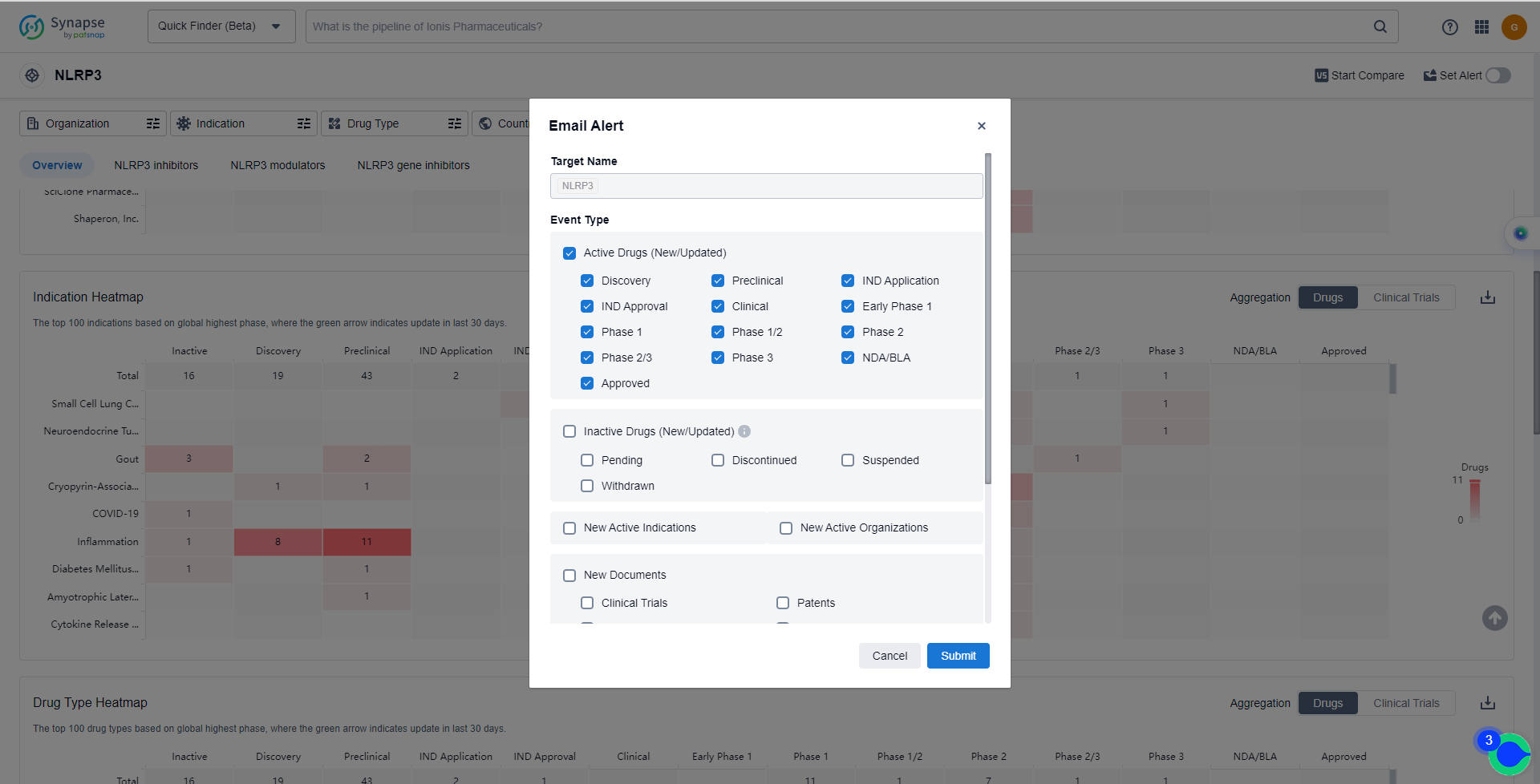Deciphering NLRP3 Inhibitors and Keeping Up with Their Recent Developments
NLRP3, also known as NOD-like receptor family pyrin domain containing 3, is a protein complex involved in the innate immune response in the human body. It plays a crucial role in the activation of the inflammatory response by sensing danger signals and initiating the production of pro-inflammatory cytokines. NLRP3 is primarily expressed in immune cells and is responsible for detecting various stimuli, including pathogens, toxins, and cellular damage. Dysregulation of NLRP3 has been implicated in several inflammatory diseases, such as gout, rheumatoid arthritis, and neurodegenerative disorders. Understanding the role of NLRP3 can aid in the development of targeted therapies for these conditions.
The abnormal activation of NLRP3 inflammasomes is associated with the pathogenesis of various human diseases, such as gout, inflammatory bowel disease (IBD), type 2 diabetes, atherosclerosis, non-alcoholic fatty liver disease, silicosis, Parkinson’s disease, Alzheimer’s disease, and more. Mutations in the NLRP3 gene can lead to spontaneous activation of NLRP3 inflammasomes and are associated with Cryopyrin-Associated Periodic Syndromes (CAPS). Therefore, inhibiting the activation of NLRP3 inflammasomes may provide potential therapeutic methods for these diseases, which currently lack effective clinical interventions.
The analysis of target NLRP3 in the pharmaceutical industry reveals a competitive landscape with multiple companies focusing on its development. EpicentRx, Inc., Roche Holding AG, and Novartis AG are among the companies with the highest stage of development on this target. Approved indications for drugs targeting NLRP3 include various cancers, inflammatory conditions, and infectious diseases. Small molecule drugs and biosimilars are progressing rapidly, indicating intense competition. The United States, China, and European Union are leading in terms of development, with China showing significant progress. The future development of target NLRP3 holds promise for innovative therapies in various indications, with continued focus on R&D and competition among companies and countries.
How do they work?
NLRP3 inhibitors are a type of drugs that target the NLRP3 inflammasome, which is a complex involved in the regulation of inflammation and immune responses. From a biomedical perspective, NLRP3 inhibitors are designed to suppress the activation of the NLRP3 inflammasome, thereby reducing excessive inflammation and potentially treating various inflammatory diseases.
The NLRP3 inflammasome is composed of several proteins, including the NLRP3 protein, which acts as a sensor for detecting cellular stress and danger signals. When activated, the NLRP3 inflammasome triggers the release of pro-inflammatory molecules, such as interleukin-1β (IL-1β), leading to inflammation.
NLRP3 inhibitors work by blocking the activation or assembly of the NLRP3 inflammasome, thereby preventing the release of pro-inflammatory molecules. By inhibiting NLRP3, these drugs have the potential to alleviate inflammation-associated conditions, including autoimmune diseases, metabolic disorders, and neurodegenerative diseases.
It's important to note that NLRP3 inhibitors are still under investigation and clinical trials to determine their safety and efficacy. However, they hold promise as a potential therapeutic approach for managing inflammatory diseases by targeting the NLRP3 inflammasome.
List of NLRP3 Inhibitors
The currently marketed NLRP3 inhibitors include:
For more information, please click on the image below.
What are NLRP3 inhibitors used for?
NLRP3 is associated with a range of diseases, including atherosclerosis, Alzheimer’s disease, inflammatory bowel disease, and non-alcoholic steatohepatitis. For more information, please click on the image below to log in and search.
How to obtain the latest development progress of NLRP3 inhibitors?
In the Synapse database, you can keep abreast of the latest research and development advances of NLRP3 inhibitors anywhere and anytime, daily or weekly, through the "Set Alert" function. Click on the image below to embark on a brand new journey of drug discovery!








